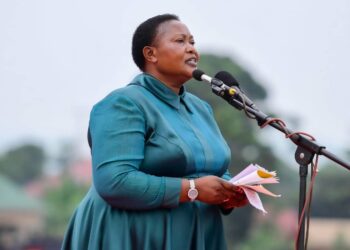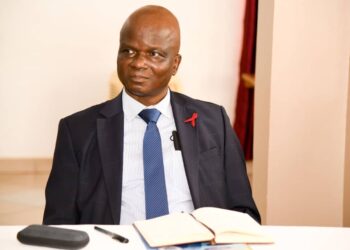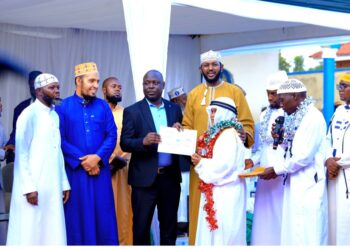Gunfire echoed through the slums of Nairobi on Friday night after President Uhuru Kenyatta was declared the winner of a disputed election, triggering a violent outpouring of anger in opposition strongholds.
Screams and gunshots could be heard in several of the capital’s poorer districts moments after the electoral commission sought to end a four-day impasse over the outcome of Tuesday’s vote by announcing Mr Kenyatta’s sweeping victory over his rival Raila Odinga.
The president secured a second five-year term after winning 54 per cent of the vote, a 1.4 million vote margin that was larger than opinion polls suggested. The opposition rejected the result even before it was announced, complaining of “systematic” fraud.
With violent protests also being reported in Kisumu, Kenya’s third city, there were fears that the former British colony could witness a reprise of the violence that claimed 1,300 lives after Mr Odinga’s defeat in another election ten years ago.
Members of Mr Odinga’s Luo ethnic group attacked property belonging to members of the president’s tribe in Nairobi’s Kibera slum as police struggled to control the violence, despite being deployed in record numbers.
“They are burning down Kikuyu homes,” a resident said.
With 180,000 security personnel drawn from the army, police and even the forestry service on standby, Kenyan authorities will hope to stamp out the violence quickly.
But many worry what the human cost of such a massive show of force might be.
Mr Kenyatta appealed for calm but there was no word from his vanquished rival, who has hinted that he may take his battle for the presidency, which he claimed to have won, to the streets.
Moments before the official announcement was made, the opposition rejected the result and walked out of the main election centre.
“We are not going to be party to this,” Musalia Mudavadi, one of the opposition coalition’s five leaders, said. “Our issues have not been addressed.”
Defying international pressure, the Odinga campaign ruled out a legal challenge.
“For us going to court is not an alternative,” James Orengo, a manager of the Odinga campaign, said. “We have been there before.”
The opposition had earlier demanded that Mr Odinga be declared president after claiming an elaborate conspiracy to cheat him of victory.
The opposition leader claimed that the electoral system had been hacked to alter the result in favour of his opponent and later accused the electoral commission of deliberately concealing the true result of the vote, which he said he had obtained from a whistleblower.
Yet many observers say they hope any violence is likely to be more limited than that which followed 2007 election, which was more antagonising because it appeared more obviously skewed against Mr Odinga.
This time round, there has been greater scepticism about the opposition’s rigging claims, although Mr Odinga is now attempting to put together a more coherent, if still unsubstantiated, case by addressing the most serious question hanging over the election’s credibility.
The electoral commission, known as the IEBC, has so far been unable to explain why key documentation that would confirm results submitted by returning officers was apparently missing from a quarter of the country’s 41,000 polling stations.
Mr Odinga’s campaign yesterday revealed the existence of a parallel tallying centre — kept secret after masked gunmen raided its previous incarnation days before the election — that is attempting to collate results from its agents’ copies of the missing forms.
David Ndii, who heads the opposition’s technical committee, said he was not yet able to provide a full result of the opposition count as not all the forms had been collected. But he said that an early “snapshot” cast the official result into doubt.
The Telegraph
Do you have a story in your community or an opinion to share with us: Email us at editorial@watchdoguganda.com











